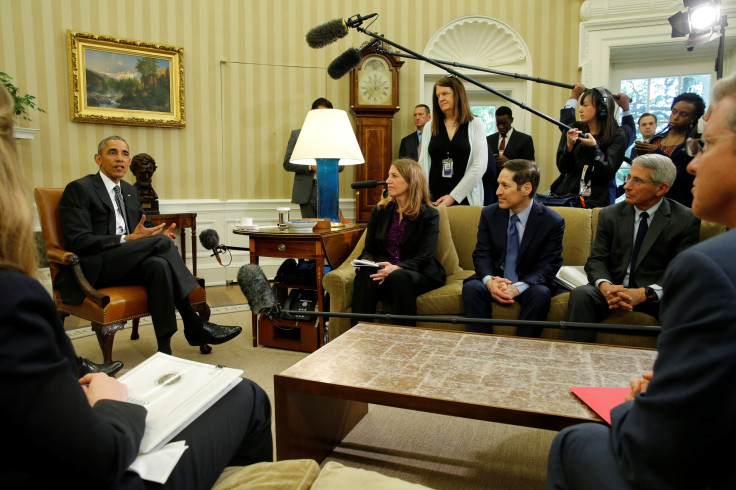How To Be A Leader: Presidential Candidates’ Charisma Comes From How They Speak, Not What They Say

Becoming a politician is not for the reticent; it requires a certain manner of speaking and behavior that conveys strength, experience, and likeability. A charismatic leader is seen as one who can unite the people, but what about them is capable of doing this? While some might say it’s the message they’re spreading, a new study finds it’s actually their tone of voice that assembles the masses.
Researchers from the University of California, Los Angeles’ Voice Center for Medicine and the Arts recently concluded a study that compared the voice modulation strategies of Hillary Clinton, Bernie Sanders, Donald Trump, and Carly Fiorina. Their findings show that while all candidates presented wildly different messages, they did so across the board with the same vocal delivery, which made them appear charismatic.
Study author Rosario Signorello, a postdoctoral researcher in the Department of Head and Neck Surgery at UCLA's David Geffen School of Medicine, has spent the last two years examining the biological components of charismatic speech. Previous studies have focused on the vocal characteristics that are responsible for politicians who appear authoritarian and benevolent, but not charismatic.
"Our hypothesis is that persuasive goals change when you address a different audience, and this change is reflected in voice acoustics," Signorello said in a statement.
Together with her colleagues, Signorello assessed the vocal pitches of Clinton, Sanders, Trump, and Fiorina while they were speaking in three different settings: political rallies, meetings with other political figures, and on nonpolitical talk shows.
When all four politicians spoke in large venues with lots of voters, they utilized a wide, fundamental frequency range that is often perceived as the key to being charismatic. However, the research team found that each politician’s pitch varied from very low to medium (skipping high altogether) when they addressed other politicians; specifically, when Clinton addressed the United Nations Commission on the Status of Women, when Sanders spoke to the U.S. Senate, and when Trump and Fiorina appeared at a New Hampshire Leadership Summit.
"This vocal profile seems to reflect leaders' use of vocalizations to display dominance while addressing speakers of the same social status," Signorello said. "They use voice to convey their authoritarian charisma. The goal of this research is to find a link between species, to demonstrate that the similarities in vocalizations between male and female charismatic speakers, in different languages and cultures, are the result of an evolved way of using vocalization by a group's leaders."
Now that we know charisma helps us sound more like leaders, let’s look at how we can make ourselves seem more compelling when we speak. Researchers from the University of Queensland in Australia assessed mental speed among 417 participants. The results of the study showed that people who respond quicker to questions and visual tasks are perceived as more charismatic. Mental quickness was considered a stronger predictor of charisma than IQ and other personality traits.
Source: Signorello R, et al. Why Fry? An Exploration of the Lowest Vocal Register in Amplified and Unamplified Singing. 171st meeting of the Acoustical Society of America . 2016.
Published by Medicaldaily.com



























